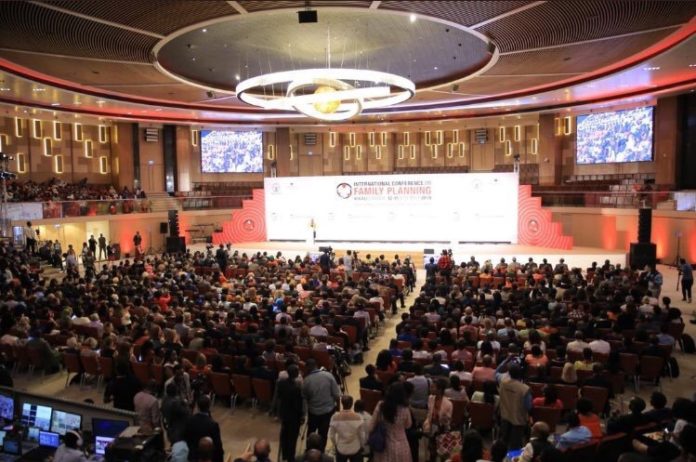Last year the US state department announced the decision to withdraw funding to the UN Population agency
The United Nations Population Fund (UNFPA) is struggling with a funding gap of $350 million over the next three years; had the United States not decided to withdraw funding to the agency that works across the world on population control, more than half of that money would have come from the US.
“We deeply regret the withdrawal of funds by the United States. At the time of withdrawal, the funding stood a $60 million per year. That is part of the larger gap of $350 million over the next three years. UNFPA provides 40 percent of all donated contraceptives the world over. We want to make sure nobody is left behind… as of July 2018 315 million girls and women had access to contraception – the highest in history,” said Dr Natalia Kanem, executive director of the UNFPA. She was speaking on the sidelines of the 5th International Conference on Family Planning in Kigali.
Since 2012, 46 million more women and girls who want to avoid or delay pregnancy have begun using a modern method of contraception in the world’s 69 poorest countries
The US State department last year announced the decision to withdraw funding to the UNFPA, alleging that it the agency is involved in forced sterilisations in China. UNFPA has denied it.
More than 3,700 global policymakers, researchers, young people, faith leaders and family planning advocates from around the world have gathered in Kigali to attend the 2018 ICFP themed “Investing for a Lifetime of Returns,” co-hosted by the Bill & Melinda Gates Institute for Population and Reproductive Health at the Johns Hopkins Bloomberg School of Public Health and the Ministry of Health of the Republic of Rwanda.
According to an annual report on family planning released on the eve of the conference, since 2012, 46 million more women and girls who want to avoid or delay pregnancy have begun using a modern method of contraception in the world’s 69 poorest countries. This represents an increase that is about 30 percent greater than the historic trend, bringing the total number of women and girls with access to modern contraceptives to 317 million in these regions. India leads the world in spending on family planning which is one of the indicators of government commitment.
Many of the speakers at the various sessions noted Rwanda’s commitment to improving health and access to family planning services, which serves as an inspiration and example for other countries. As of 2014-2015, 48% of all married women in Rwanda are using modern contraception, though more efforts are needed to increase the number of family planning users. According to Dr. Diane Gashumba, the Minister of Health of Rwanda, “Rwanda is committed to improving awareness and increasing demand for family planning, expanding the range of contraceptive methods available, adding long-acting and reversible options, and ensuring the availability of family planning to 14,841 Rwanda administrative villages by the 45,000 community health workers in service.”


